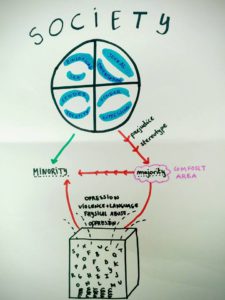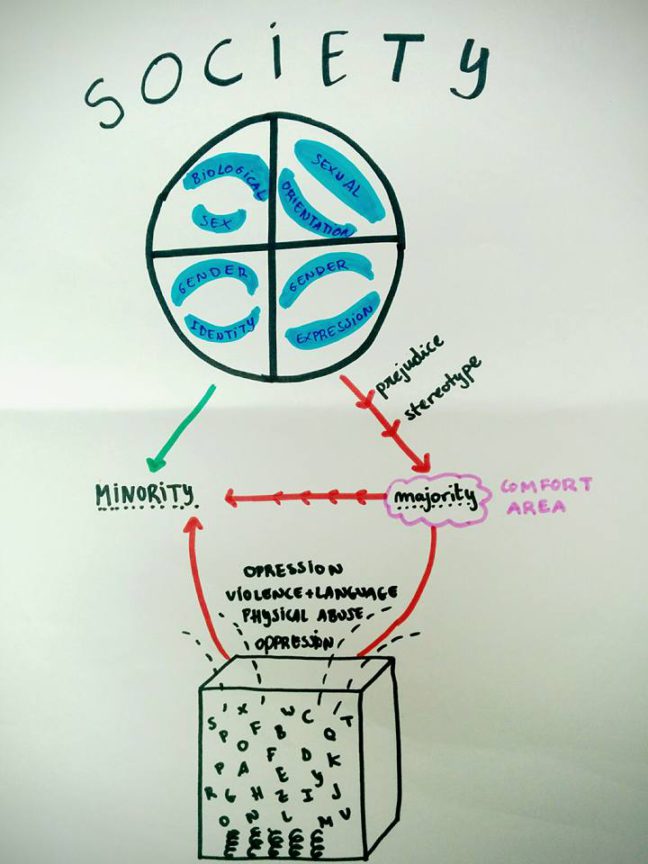When somebody needs an explanation for a word it’s worth to seek for it in a dictionary. Then, do we strictly agree with that explanation? Or is there something else that we would need to find out to the best explanation?
Let’s try in a random online dictionary to type gender discrimination: «a situation in which someone is treated less well because of their sex, usually when a woman is treated less than a man.» Do you completely agree with that explanation?
These days, spending most of the day streaming in gender in youth work we learnt many things. We would like to highlight a useful one for us: many possibilities exist when talking about gender issues in a human being. There is no more black or white.
So, here we are: a complex but no difficult society to live in if only we respect each other. Are we only talking about women if you hear or read the word gender? Not anymore. Check the cake of sexual identity, simplified in this picture, to fully be aware of the variety.

Majority, written in non-capital words, appears to be in a comfort area where searching for a word in a dictionary is as simple as it is: dictionary, remember the alphabet, word found. / google it.
Meanwhile, MINORITY, which is a tiny (or silent?!) amount of population goes further and the dictionary is never ever enough.
Although a dictionary can provide you with an explanation of a term or a word, you should always keep in mind that the explanation given may not be the final one and there is always room for deeper contexts and meanings. That is way it is useful and necessary to go further beyond the words, as that is a way to learn. So without that knowledge the red lines in the infographic appear: prejudice, stereotype… and a box full of words that explain the non-desirable actions as oppression, violence in language, physical abuse, … also appears.
Don’t let those red lines be so lightly, allow the green ones spread wider among all the infographic and life. Don’t stay in the comfort area. Let’s take action: learn, read, ask, think critical, don’t conform yourself and share!
Written by Gratian and Daniela from Intercultural Institute Timisoara / Meritxell Vidal Barreda from AHEAD (Barcelona)
